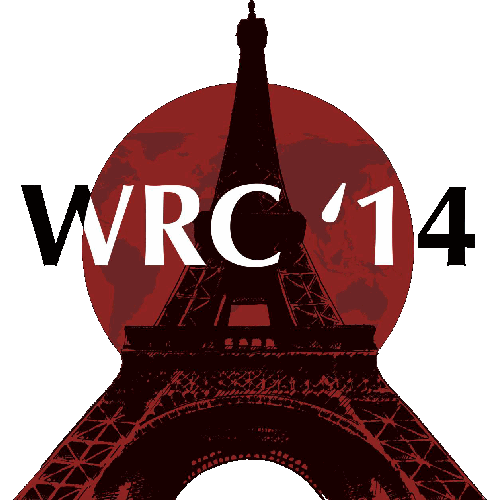This rule book is licensed under a Creative Commons Attribution-NonCommercial-ShareAlike 4.0 International License.
https://creativecommons.org/licenses/by-nc-sa/4.0/
It reuses some text from the EMA Riichi rule book by Tina Christensen.
World Riichi Championship Rules 2015Rule Book 2015 | World Riichi Rules 2014 |
16/06/2015 Sylvain Malbec | 21/05/2014 Revision 1.04 Sylvain Malbec |
This rule book is licensed under a Creative Commons Attribution-NonCommercial-ShareAlike 4.0 International License. https://creativecommons.org/licenses/by-nc-sa/4.0/ It reuses some text from the EMA Riichi rule book by Tina Christensen. | This rule book is licensed under a Creative Commons Attribution-NonCommercial-ShareAlike 4.0 International License. https://creativecommons.org/licenses/by-nc-sa/4.0/ |
1PrefaceThe World Riichi Championship Rules cannot be called to be a "world-wide rule" if not based on competition rules used by major organizations around the world. To achieve that, the rule-sets of the following organizations have been considered while writing the WRCR:
Nine organizations, totalling thirteen rule-sets and variants. Most English-language authors use the terms "chii" and "pon" irrespectively if the group is melded or concealed. This is confusing, since in Japanese language those terms refer only to the action of calling a tile for melding. Considering world championships aim to an international audience, and this document being written in English, the terms "chow", "pung" and "kong" will be used to refer to the corresponding groups since they are already widespread among English speakers and avoid any ambiguity. The rule has been revised on behalf of the World Riichi Championship Committee:
Blessing of Man is no longer cumulative with other yakus, the precedence and timing for declarations have been reviewed, penalties adjusted, and a lot of the text re-worded. | 1PrefaceA World Riichi Rule cannot be called to be a "world-wide rule" if not based on competition rules used by major organizations around the world. To achieve that, the rule-sets of the following organizations have been considered while writing the WRR:
Nine organizations, totalling thirteen rule-sets and variants. Most English-language authors use the terms "chii" and "pon" irrespectively if the group is melded or concealed. This is confusing, since in Japanese language those terms refer only to the action of calling a tile for melding. For groups, the Japanese terms "shuntsu", "kōtsu" and "kantsu" will be used to avoid any ambiguity. | ||||||||||||||||||||||||||||||||||||||||||||||||||||||
Sylvain Malbec 30 December 2013 21 May 2014 On behalf of the World Riichi Championship Committee: 16 June 2015 | Sylvain Malbec 30 December 2013 Revision 1.04 - 21 May 2014 |